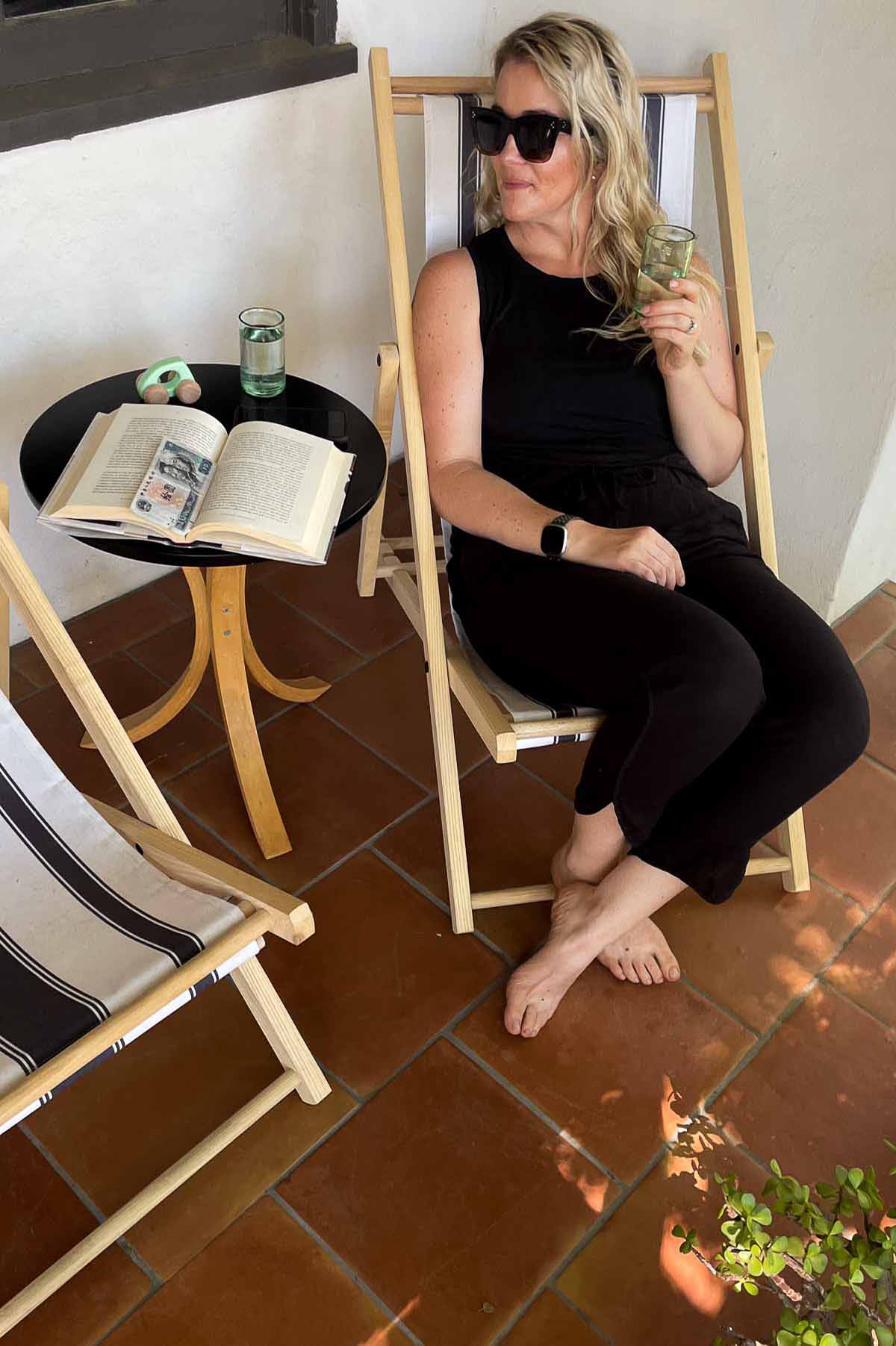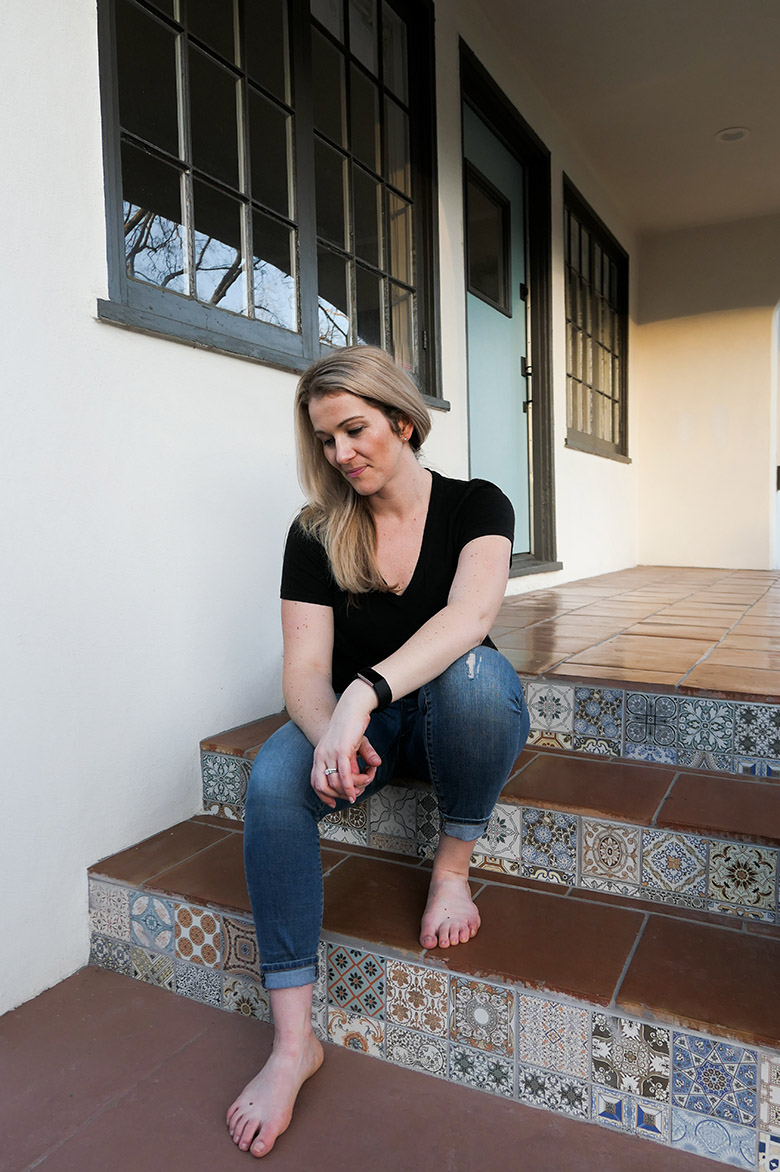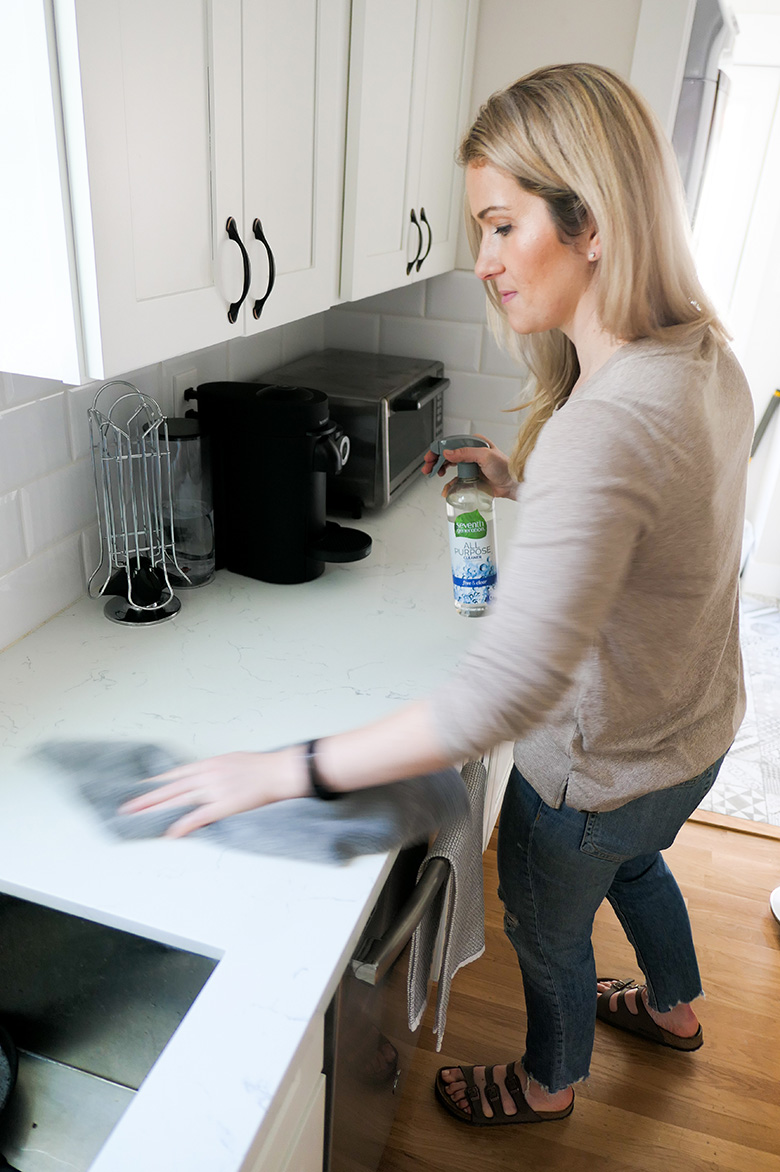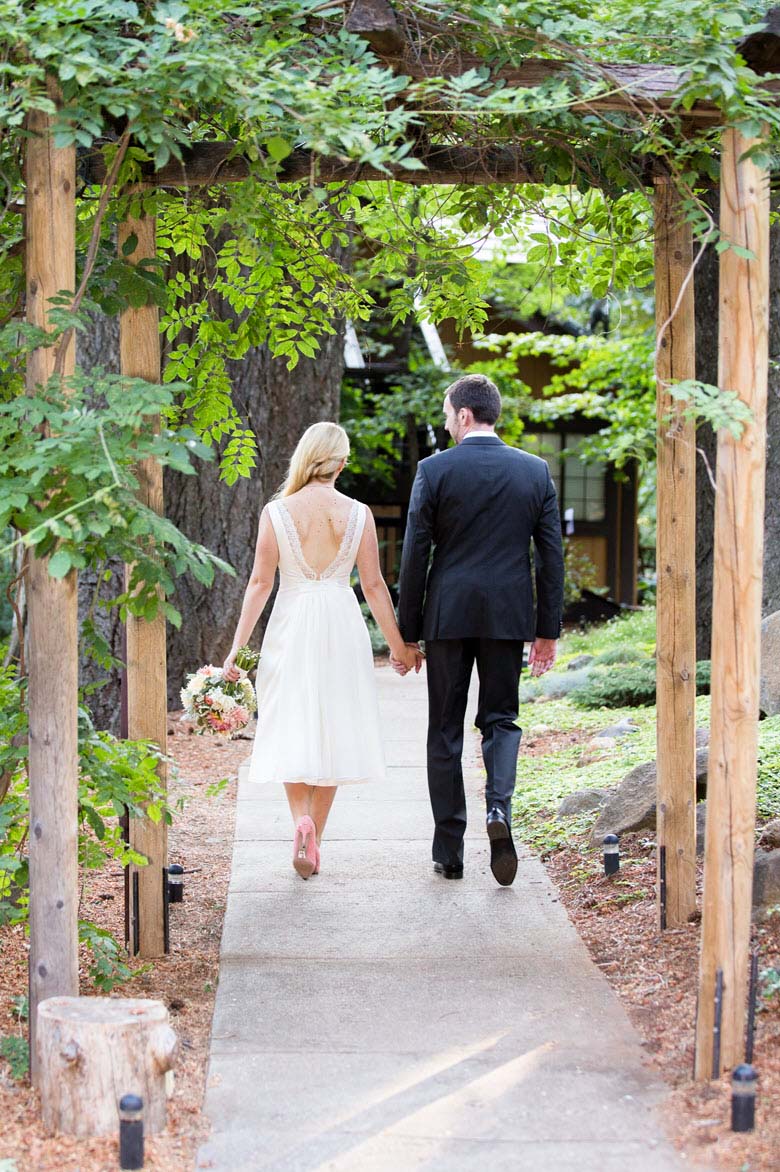Losing A Parent in Your 20s
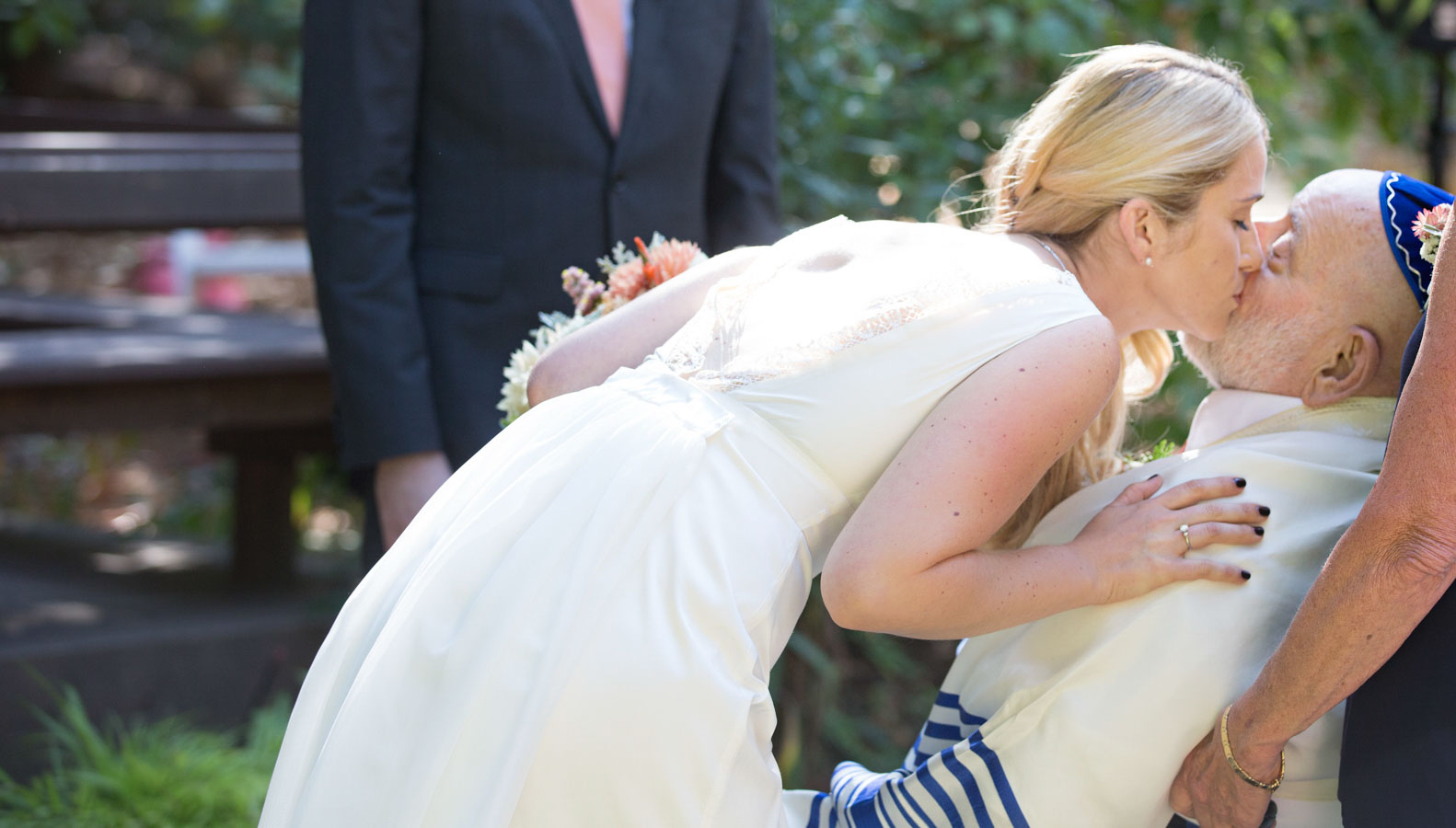
It’s just a few weeks until the one-year anniversary of my dad’s passing. Losing a parent is a unique experience that nobody can begin to understand until they’ve gone through it. Many of you know that I didn’t mention anything here on the blog until November – over six months after the fact.
While that might seem crazy, the truth is that I needed to mourn and go through the experience on my own. It took me that long to put even those few words together to say publicly. And only now, a year later, can I write this post. I’m still mourning, but I have a enough space to share what the last twelve months have been like…
For almost the entire year, I’ve been thinking about writing this blog post and what I wanted to include.
The first thing I want to write about is the experience of losing a parent and, specifically, losing a parent in your 20s because it is difficult to really connect with people your age about the experience. So this is a small effort to provide solace for anyone of you who needs to make that connection with someone who just somehow seems to understand.
The second thing I want to talk about is a message to everyone who doesn’t know what to say or how to act toward those who’ve lost a parent. I think it makes most sense to talk about those in reverse order, since the latter message is to all of you and the former to those of you in need now or in the near future.
What do you say to Someone Who Lost a Parent
One of the most difficult things of losing my dad (in terms of the day-to-day) was telling people that I’d recently lost him. Once I got used to saying it, I then had to figure out what to say to all the messages of condolence (more below).
For those of you wondering what to say to your friend who recently lost a parent, all you need to say is that you’re sorry and offer to help if needed. We hear you loud and clear. I promise!
Beyond that, help me get back to normal. Mourning is something I have to do on my own (yes, I’m still doing it). And a big part of mourning is getting to a point where I know that life can move forward. Belaboring my loss and even talking about him (even the positive comments) wasn’t something that helped me. It made me sad. It made me cry. And it made me feel like I had no control of my life. That sounds extreme, but the kind of loss that comes with losing a parent is sad; it does make you cry; and it was out of my control.
Obviously as time passed, I was more able to have these conversations, but at first (especially the first 6 months), my sharing that I’d lost my dad was merely to let people in my life know what was going on with me. It wasn’t a plea for help. And it certainly wasn’t an attempt to get any special treatment. It was a life update – a big one and a very sad one – but an update nonetheless.
We as a society are very uncomfortable talking about death and I’m here to say that it’s ok – you don’t have to. After you’ve said you’re sorry and offered to help, just remind me why we’re friends. Make me laugh. Let’s hang out like we always do, making new memories, and enjoying our lives together!
CONTENTS
Losing a parent in your 20s
One of the weirdest but best things that happened around the time of my dad’s death was that a few of my friends also lost parents. It was an odd thing, but there were three friends who lost their mom or dad within six weeks of my dad’s passing.
I say that this was the best thing because these were the people who helped me discover that these new, unexpected emotions were normal. I wasn’t sure if I was too sad or not sad enough those first few months. It turned out my friends were feeling the same and they were dealing with ebbs and flows of emotions that unexpectedly came and went.
Since death is such an unhappy event and because we don’t have control over the specifics, it’s a topic we rarely talk about until we have to. And by then, we are at a loss for what to do. Because of how helpful it was to talk to others who’d lost a parent, I want to write this post. If only to talk to one person who needs to read this right now, I want to be there for you!
THE FIRST FEW WEEKS
My dad’s passing was not unexpected. He’d fought many long, hard years for his life and, truthfully, we were all surprised he lived for as long as he did given all his conditions. The fact that this wasn’t a huge surprise, however, didn’t make losing him any easier. And it didn’t make my wave of emotions any less painful or unpredictable. He was gone and now I had to get used to it. After crying when my mom first called to tell me, I was actually relieved. He’d had a trying last few months and weeks. Now he didn’t have to fight anymore and that’s what relieved me. I also felt closer to him somehow – as though he was watching over me…
THE SECOND MONTH
After a few weeks, I found out my mom wasn’t sleeping well and she was struggling to deal with losing her partner and best friend. So, the next month, I worried about her. I prayed that she’d find solace and peaceful nights of sleep.
I called and texted her even more than normal, planned trips with her, and tried to make sure she knew that she wasn’t alone. Obviously I wasn’t going to be able to take the place of her husband of thirty years, but I would try my best to make her happy…
MONTHS THREE TO SIX
When I realized that she was hurting but ok, my mourning hit – nearly two months after he’d gone. What happened for the next few months was hard. I’d be fine for a few days and then I’d start crying. I’d start crying when I saw something in my home that reminded me of him. I teared up when I saw that one of his favorite movies was on TV. I’d get choked up when my husband said something just like he would say (usually unintentional!).
The difficult part was that something one day could be innocuous to me and the next day it would send me straight to tears. It was the unpredictability of it all that really caught me off guard.
I remember one day (maybe 4-5 months in), I was sitting at the nail salon. The woman who owns the shop also lost her dad last spring. I’d sat through most of my manicure without any issues – not really thinking about my dad. As I sat waiting for my nails to dry, I thought about her losing her dad, then me losing my dad, and then tears started falling down my face.
Because this wasn’t totally uncommon at this point, I let ‘em roll and tried to pat my tears dry after a moment as usually happened. I thought I’d recomposed myself and the tears started falling again. I wasn’t sobbing or the extreme of what you’d imagine, but tears fell and fell and fell. And the reality is…you just have to let them. You need to be sad and you need to go through this process.
Because the mourning process is so unpredictable, there are a few things that I’m now very aware of that were/are a result of my mourning. They’re worth sharing because they’re subversive really, but actually play very much into your everyday reality.
Feelings of Insecurity.
My mom started receiving grieving mailings after my dad passed away and at first we wrote them off. Then she got one message that talked about low self-esteem and insecurity. And that one shocked us both because we realized right away that we were both suffering from this – each in our own way.
I think because death is such a life-changing event, you start to feel as though you have no control. On top of that, you seem to be sad a lot of the time. Thoughts that maybe you shouldn’t hang out with others or that you just aren’t good at your job start to creep up on you. Apparently this is totally normal.
One of the interesting things is that I thought I’d gotten over this part, but I’ve noticed it returning recently. Maybe it’s because of the anniversary, but the more I think about it, I think it’s been there all along.
A friend recently pointed out that I talk about the weather a lot in my blog posts. While I dress for the season, so the weather plays a huge role in my style decisions, I think it was also a safe topic. I didn’t want to share my sadness or bemoan any insecurities I was dealing with.
I’m making an honest effort to minimize talking about the weather now that I’m aware of it. It did help me carry on through those tough times, however. So, thank you to those of you who listened to my LA weather reports…
As a result of this insecurity and sadness, I’ve been seeking comfort and happiness like crazy. I travel quite a bit, but my desire to stay home on the couch has been insatiable. And I don’t want to participate in anything I know will be sad, serious, or deal with death.
I’ve been yearning for the familiar and the comfortable for the last twelve months. I’ve watched movies I grew up on and read only historical fiction. They weren’t current and they were comfortable. They were old, predictable, and familiar.
Significant Others.
I’ve belabored the point that nobody understands losing a parent until they’ve gone through it. My husband hasn’t lost a parent or grandparent, so he couldn’t understand my hurt and pain.
That isn’t to say he didn’t try and that he wasn’t there for me. He was. He was supportive and caring and loving beyond imagination. But there was still a part of me and my mourning that I couldn’t connect with him about.
If you and your significant other struggle to connect in your moments of mourning, it isn’t their fault and you shouldn’t blame them. They’re doing the best they can.
Connecting with Others Who’ve Lost a Parent.
The most relieving moments I had during those first few months after my dad died was talking to people who’d lost their parents too – recently or years ago. As you can imagine, almost all of them were over the age of 50.
The thing that’s really difficult about losing a parent in your 20s is that your friends won’t be able to understand. Don’t be afraid to talk to anybody who understands even if they’re twice your age. The hurt and pain is the same and they will help you recenter and know that you aren’t alone and you’re mourning story is similar to theirs.
AFTER 6 MONTHS
My mom and I thought that the first year was going to be hard. I think the more realistic timeline is that the first six months are very difficult – full of unexpected moments. After that, it’s a bit easier. The unpredictable moments are much fewer and much farther between. It’s not great, but you start to feel in control again.
As we’ve started talking about the unveiling service (part of Jewish culture where you ‘unveil’ the headstone and the time of mourning turns to more of a celebration of life) this past month or so, I’ve started to close up again. I’m tearing up because I’m having to talk about him and my loss again.
I’ve talked to a few people who’ve had similar experiences around the anniversary dates. Some dates are harder than others and it varies from person to person. Father’s Day and the holidays weren’t hard for me, but his birthday a few weeks ago wasn’t easy…
A Few Words of Advice. . .
This whole process is very unpredictable. Very unique. And it’s different for each person in so many ways. Because of this, advice is hard, but there are a few things that I think are worth sharing…
HOW TO HANDLE CONDOLENCES
As I mentioned above, one of the hardest things right after I lost my dad was having to tell people. At first it was hard because I had to verbalize my very sad news. It was also hard because I was then initiating a conversation that I didn’t want to have.
While I was sad and dealing with my loss, talking about losing him or about being sad about it sounded terrible. Everyone who I tell is wonderful and offers their condolences, their sorries, and their help.
It seems so weird to say thank you to their words, but that really is the best response. They care about you and they know they need to acknowledge your situation. You should thank them for their offering and then move on as you need.
If you wanna talk, then talk, but chances are you’ll just want to move on – move on back to a normal. It really is in your hands to do that. The following may sound terrible, but…
Your friends don’t really want to talk about something so sad and if they haven’t lost a parent, they really have no idea what you’re going through. They’ve done their part with offering condolences. You do your part to accept them. And then you can both move on.
Don’t feel guilty and don’t feel as though you need to talk about your loss with everyone. You aren’t mourning any less. You aren’t saying you’re fine. You’re acknowledging it and then trying to live your life. There’s nothing wrong with that.
HOW TO PROPERLY MOURN
One of the things I learned about losing a parent was that I needed to mourn and I needed to do it on my own schedule (though I obviously had no idea what that schedule was). Some days I needed to cry and miss my dad. Other days, I needed to live my life and though I thought about him being gone, it didn’t bring me to tears. Sometimes I wanted to talk about him (usually with my family) and other times, I avoided the topic.
At Thanksgiving, about six months in, we had dinner with my husband’s family and a family friend. My mom joined us and we ended up sharing stories about my dad. It was all part of a happy conversation, but I woke up the next day and my heart hurt. It was heavy.
Because the news of his passing was “old news” by this point, I hadn’t had to talk about him very much or at least the conversations were on my terms. So after an evening of talking about him, I was in pain again from missing him. And I didn’t want to talk about him for a few days.
It was unexpected and it felt weird, but it was also a reminder that I was still mourning. And that’s the best experience I can share with you – mourn on your own timeline. Don’t think it’ll last for only a certain amount of time. Don’t think it should happen a certain way.
That’s the most important thing you can do for yourself. You don’t need to worry about how the world watches you mourn, you need to worry about mourning so that you can move forward.
FOR THOSE REALLY HARD TIMES
It’s no surprise that there are going to be some really hard times. Sometime in October, I think, so six months in, I felt as though I’d lost my connection with my dad. Granted, my life wasn’t peachy keen for a few weeks.
But the thing that frustrated me was that I missed him. I struggled with how to reconnect with him (his spirit or his memory – I have no idea) and nothing seemed to work. Then one day, I sat down to write him a letter.
I opened up a word document and typed out a letter, telling him how much I missed him and that I really needed help channeling his tenacity to get through the hard times. I talked about my mom and my brothers in there too and ended the letter with a proper closing. Then I went out for a walk.
A few hours later, I came back, deleted the file, and moved on. The crazy part was that I felt reconnected to him within the day.
It may sound crazy, but when you really miss your mom or dad, talk to them. It can be out loud as you drive down the freeway or via a letter. I don’t know if my dad read my letter with me (though I like to think so).
The experience, however, did make me feel reconnected, recentered, and back to having my life in control. You may have to resort to quirky things to reestablish that connection because it is still there – if only for you!
And when it becomes easy to forget about being grateful, try creating a habit to take note of the big and little things that make you happy. Another person who lost his mom in his 20s, created the Gratitude Plus App to help him do just that! You get a daily reminder at the time you choose to logon and note something (or many things) you’re grateful for.
There’s really no great way to end a post like this except to say that if you’re dealing with loss, I send you so much love and strength. And if you need someone to talk to or ask questions, please don’t hesitate to Email Me .
xo, Luci



